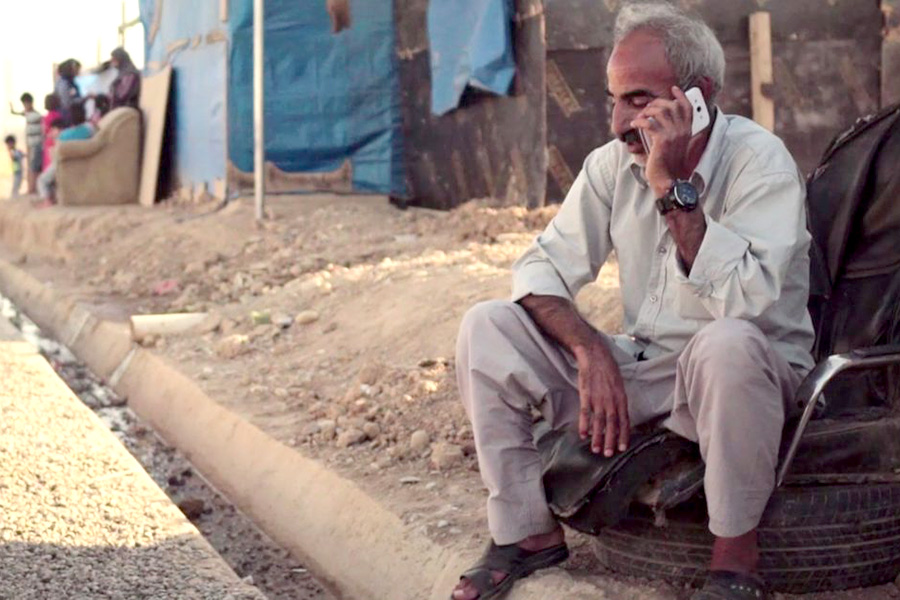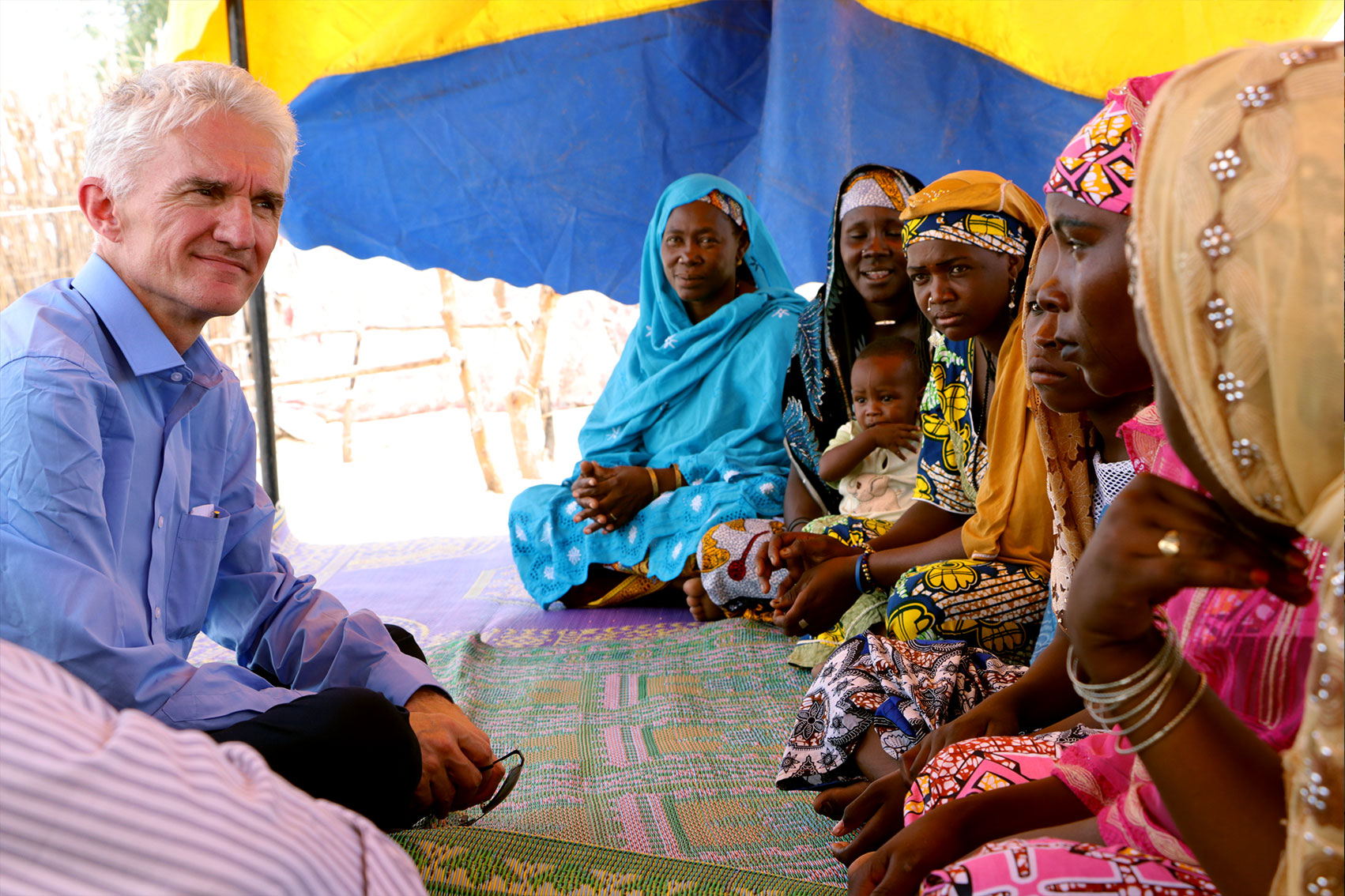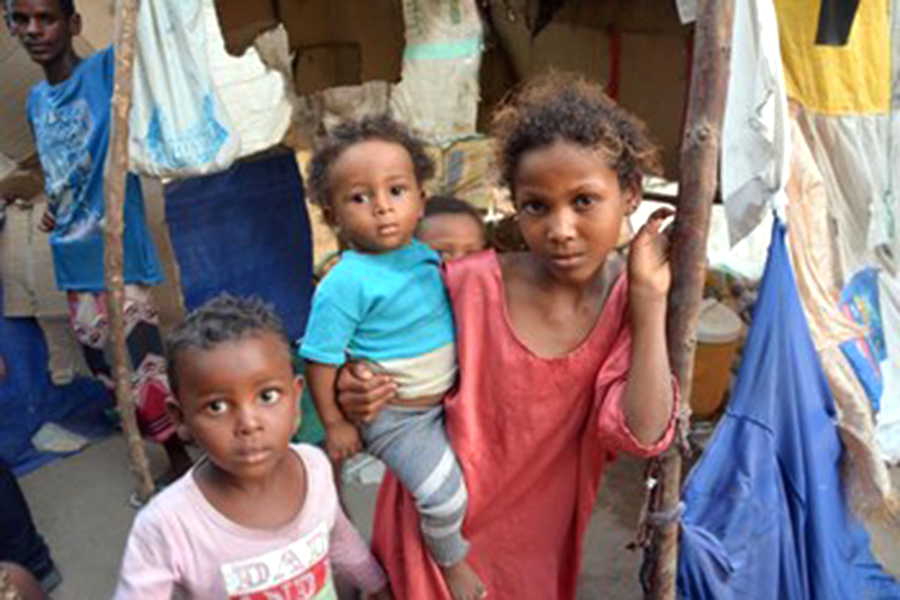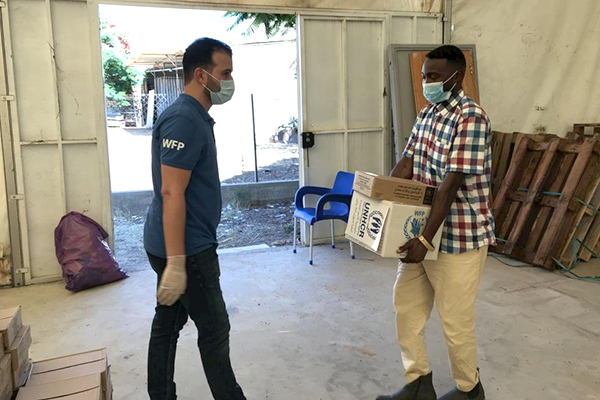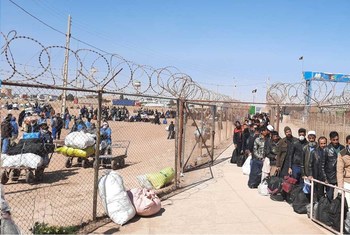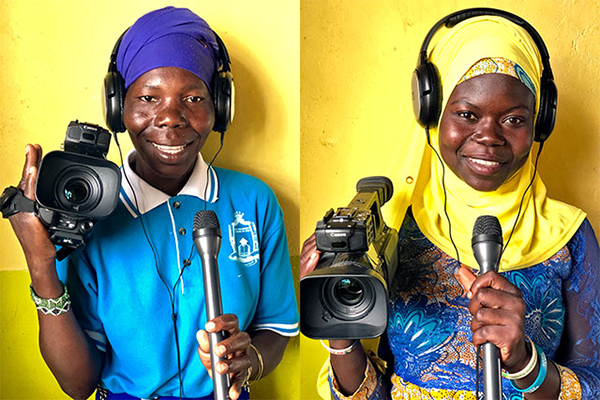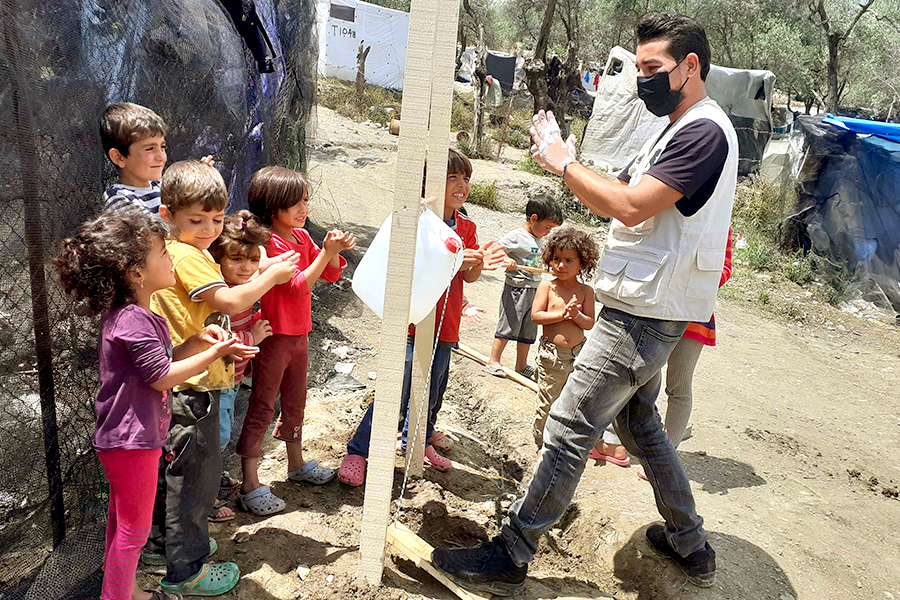Ten crises that need your attention
Humanitarian Aid
At the announcement of the World Food Programme (WFP) as the winner of this year’s Nobel Peace Prize, we revisit the Awake at Night episode when host Melissa Fleming spoke with David Beasley, Executive Director of WFP, about his own experience being sick with COVID-19 and why people should listen to the science. Mr. Beasley also explained why the pandemic is causing an spiraling epidemic of hunger. In his words, should the world fail to come together and invest in people everywhere, we may face "famines of biblical proportions."
On behalf of local and international partners in Afghanistan and Iraq, UNOPS runs inter-agency information and accountability call centres. Awaaz Afghanistan and the Iraq Information Centre provide life-saving information to those affected by conflict or natural disaster. People can call – free-of-charge – to seek advice on shelter and food, request legal or cash assistance, report misconduct, and seek out mental health and psychological support for trauma or ending abuse.
"One of the things I hold on to is most people on the planet have escaped from those problems, as the generations have passed. And when you're confronting the next bleak, horrible event, holding on to the fact that it's possible to escape…is invaluable.”
All parties to the conflict in Yemen - and the humanitarian catastrophe that it has created – are responsible for terrible crimes which should be investigated by an international criminal probe.
Charity, like the notions of volunteerism and philanthropy, contributes to the creation of inclusive and more resilient societies. Charity can alleviate the worst effects of humanitarian crises and helps spread the message of humanity in conflict situations. The International Day of Charity was established with the objective of sensitizing and mobilizing people, NGOs, and stakeholders all around the world to help others through volunteer and philanthropic activities. The Day is observed on 5 September in honour of Mother Teresa of Calcutta, nun and missionary devoted to helping the destitute.
Although Afghanistan’s COVID-19 crisis is “vast”, what people really want are jobs and security, according to a senior UN relief official.
Women play critical roles when humanitarian crisis occurs. UN Women advocates for the urgent need to support women in humanitarian action. Women share their perspectives by video.
World Humanitarian Day is held every year on 19 August to pay tribute to aid workers who risk their lives in humanitarian service, and to rally support for people affected by crises around the world. This year, the already difficult work carried out by humanitarians has been made even more so by the COVID-19 global pandemic. We wish to pay tribute and offer the most heartfelt thanks to these #RealLifeHeroes who put everything on the line to help others, no matter how daunting the odds.
Having once fled civil war, #RealLifeHero and returnee Ritah Alfred is working for FAO to support livelihoods for her fellow citizens. Ritah migrated to Uganda with her family when she was four. But as soon as she graduated from university, she returned to South Sudan to help build her new country. “I wanted to return because I love my country, and I am proud to be South Sudanese. I strongly believed that I have a role to play to bring peace and development,” she says. Working in logistics, a field that has been largely dominated by men, she remains on the front line, ensuring the continuity of FAO operations in South Sudan, since the onset of the COVID-19 pandemic.
On World Humanitarian Day (WHD) August 19, the world commemorates humanitarian workers killed and injured during their work. We honour all aid and health workers who continue, despite the odds, to provide life-saving support and protection to people most in need. This year, WHD comes as the world continues to fight the COVID-19 pandemic over recent months. Aid workers are overcoming unprecedented access hurdles to assist people in humanitarian crises in 54 countries, as well as in a further nine countries which have been catapulted into humanitarian need by the COVID-19 pandemic.
WFP saves a massive stock of wheat from Yemen’s frontline
In this opening episode for Season 3 of Awake at Night, host Melissa Fleming speaks with David Beasley, Executive Director of the World Foo



